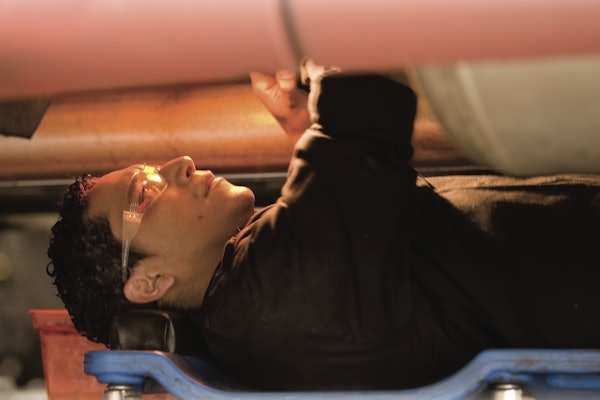
I didn’t envision spending the night of Sept. 26 sandwiched in a hallway with my husband, two kids, three dogs, a very angry cat and the house chicken, but when the National Weather Service sends out terrifying emergency wind warning messages including phrases such as “loss of life,” in the hallway these Florida residents and native Louisianans go.
The eyewall of Category 4 Hurricane Helene passed 10 miles from where we huddled in the hall. My power didn’t even go out. Our home is built to withstand a Category 3, with special windows and doors fortified to withstand the storm. As lifelong Gulf Coast residents, we’re well-versed in hurricanes. Days before, we filled sandbags and tucked them into places that held water. Our patio furniture was piled up and anchored down. When the winds howled outside, we broke out Uno and hurricane snacks like seasoned pros.
Let’s rewind to a few years before.
Winter in Florida usually means flip-flops and jackets, but an unseasonably cold few days were forecast. We opened the cabinets under sinks and stacked space heaters, wrapped up pipes, but even then, the plumbing couldn’t take 19 degrees and burst, flooding our house. All the flooring needed replacing, a cost considerably more than the relatively easy pipe repair. The house that doesn’t blink at 111 mph winds couldn’t take what’s normal winter weather in most of the country.
Each region of the U.S. has its own threats to which we are accustomed, and we love making fun of the people and things that can’t take it. Behind the humor, though, is the fact that disasters that seriously disrupt our lives, both natural and man-made, are becoming more frequent.
It’s tough living in an unprecedented time, every time.
Disasters such as Helene, which wreaked far more havoc in the Carolinas than it did here in Tallahassee, take a toll, both on our infrastructure and on our mental health. Christy Jones is a SCORE mentor from Des Moines, Iowa. Once she sold her auto body business, she became an advisor for small businesses.
She tells the story of a person she knew who owned a manufacturing business. One of his employees had two people close to them die by suicide in a short amount of time. The business was profitable enough he could pay the person to take the time they needed to get healthy.
“That’s not an everyday, normal answer that can be done,” she says. But it created an engaged employee now both loyal and healthy, meaning they bring their A-game to work and to the business’ bottom line. Suicides aren’t a disaster for the business, but they are a disaster for that employee, and business owners should take into account what it looks like when employees can’t — or shouldn’t — report for work.
“That stuff isn’t in your employee manual,” Jones says.
The same flexibility in planning for unprecedented disasters also can help in creating those loyal employees so critical to a company’s success. Start with the events most likely to happen, but also consider the outliers, the 19-degree days in Florida. And consider things like your supply chain (remember COVID?), your vendors, your customers and, yes, your employees.
Be creative too. When temperatures plunged again in Tallahassee, we were able to come up with a beach towel-based plan that kept our pipes warm and intact, even as snow fell and hung around a few days. It was hard work and required quite a bit of thinking outside the box, but it was worth it not to find out exactly how much a Florida plumber would charge to drive to my house on icy roads.
None of this is to say you should turn into Chicken Little.
In addition to the difficulty of being flexible and creative, you should also be practical, Jones says. Start your what-ifs with the ones most likely to affect you, like hurricanes in Florida, and work to the ones least likely to affect you, like a blizzard in Florida or an earthquake in Louisiana.
And don’t forget the non-weather-related events. Cyber criminals don’t care too much about climatology, but it’s definitely something you should be prepared for. You’ll probably find prep for one disaster looks a lot like prep for another, and all of them will make you feel safer.










